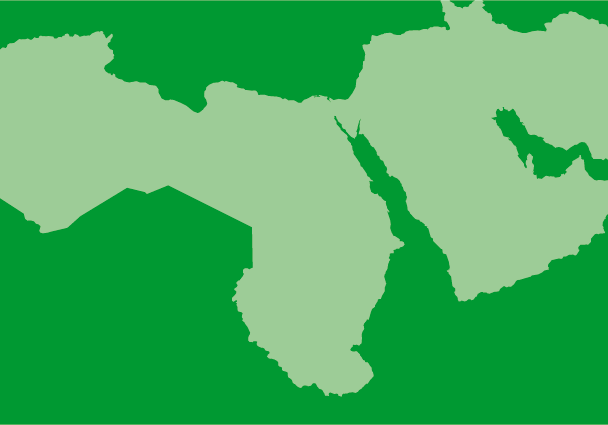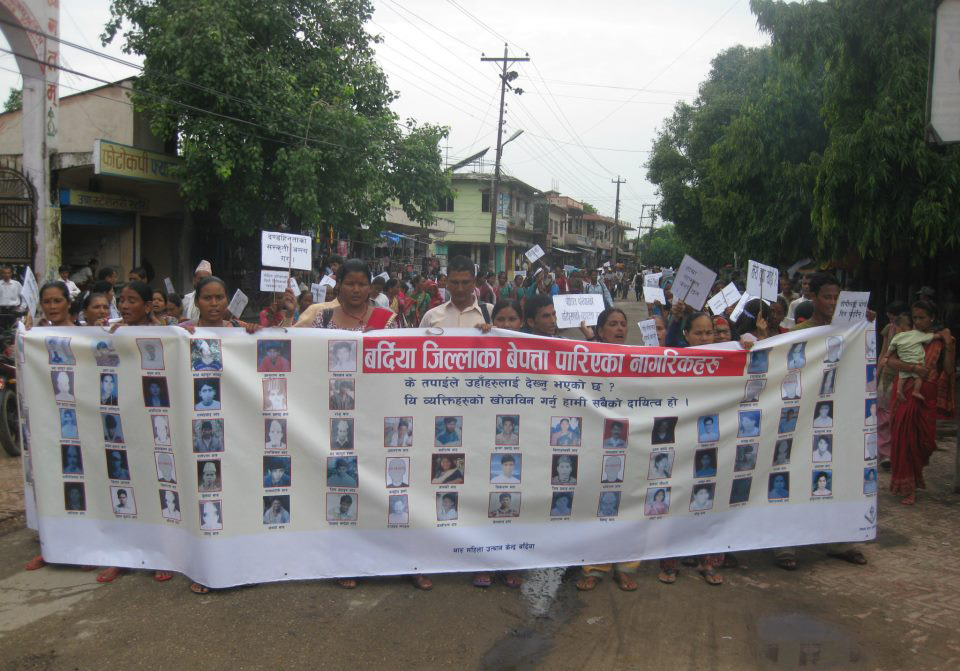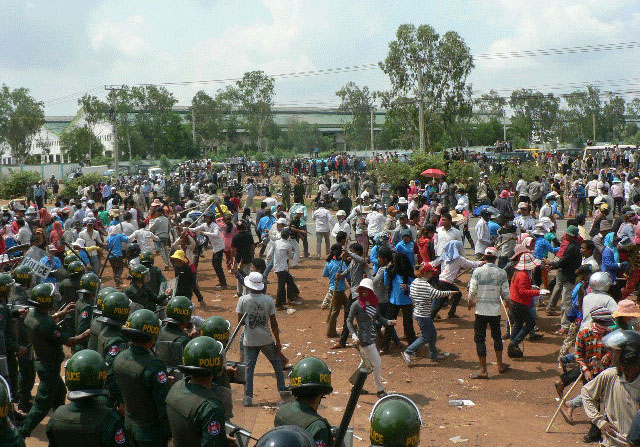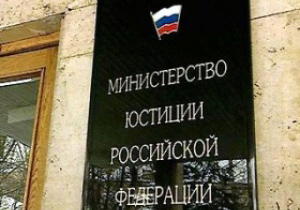
Jan 31, 2014 | Plaidoyer
Dans une prise de position publiée aujourd’hui, la CIJ évalue la conformité des principales dispositions de la nouvelle constitution avec le droit et les normes internationales.
Le 26 janvier 2014, trois ans après l’éviction du président Ben Ali, l’Assemblée nationale constituante tunisienne a voté pour sa nouvelle constitution.
La CIJ estime que la constitution adoptée est le produit d’un processus représentatif et inclusif.
Néanmoins, à certains égards, la constitution est en deçà du droit international et des normes internationales.
A ce titre, la CIJ recommande aux autorités tunisiennes de prendre en compte les déficiences de la constitution mise en évidence dans ce document.
Tunisia-Evalusation Nouvelle Constitution-Advocacy-Position Paper 2014-Fr (Texte complet en PDF)

Jan 31, 2014 | News
The Parliament of Nepal should reject the Ordinance on Truth, Reconciliation and Disappearances tabled this week and enact a new transitional justice mechanism that complies with international human rights law, the ICJ and HRW said today.
The Ordinance on Disappearances, Truth and Reconciliation Commission, signed by the President on 14 March, 2013, was declared unconstitutional and in violation of international human rights law by the Nepali Supreme Court on 2 January, 2014.
In a directive, the Supreme Court ordered the Ordinance be repealed or amended significantly to bring it in line with Nepal’s obligations under national and international law.
However, on 27 January, the Government reintroduced the Ordinance with no amendments in the meeting of the Legislative-Parliament – in direct contravention of the Supreme Court’s orders.
“Tabling a rejected version of the Ordinance after the Supreme Court’s landmark judgment on transitional justice is contemptuous, and raises serious concerns over the government’s respect for the rule of law in Nepal,” said Ben Schonveld, ICJ’s South Asia Director.
The Interim Constitution says clearly that the Supreme Court’s rulings are binding on the Government of Nepal. Article 116 of the Interim Constitution states that any order issued by the Supreme Court in the course of the hearing of a case shall be binding on the Government of Nepal and all its offices and courts.
The Supreme Court has previously held that any mechanism for transitional justice must conform with international standards, lead to accountability for serious human rights violations, and ensure victims their right to remedy and reparations, which includes the right to truth, justice, and guarantees of non-recurrence.
In its 2013 briefing paper, “Authority without Accountability,” the ICJ expressed concern over multiple provisions in the Ordinance, including amnesty provisions, which would entrench impunity for gross human rights violations in Nepal.
Any amnesty for gross human rights violations would add another layer to the complex web of immunities, documented in the report, that continue to shield those responsible for human rights abuse from accountability in Nepal.
“The Parliament of Nepal should strongly reject the tabled Ordinance and the government must expeditiously implement the Supreme Court’s directive,” said Meenakshi Ganguly, South Asia Director at Human Rights Watch. “The ordinance in its current form violates undertakings made as part of the peace agreement, and essentially strips victims of serious rights abuses of a proper chance at justice.”
The rights groups called on the government to implement the Supreme Court’s ruling, creating a new transitional justice law that, at a minimum:
- Establishes two separate transitional justice commissions: a “Truth and Reconciliation Commission” and a “Commission of Inquiry on Enforced Disappeared Persons;”
- Criminalizes the act of enforced disappearance in accordance with the definition set out in the International Convention on the Protection of All Persons from Enforced Disappearance and ensures that it is punishable with penalties commensurate with the gravity of the crime;
- Criminalizes other serious crimes, including crimes against humanity, and other crimes under international law, in a manner that is consistent with international law;
- Prohibits amnesties for gross human rights violations or crimes under international law;
- Does not contain a limitation period on the reporting of violations and ensures there are no time limits on the prosecutions of of serious crimes including enforced disappearance, other crimes under international law including, war crimes, and crimes against humanity;
- Ensures that the composition and structure of the Commissions complies with international standards. In particular, there should be a fair vetting system which aims to ensure the impartiality of the commission members and to ensure that no individuals against whom there are credible allegations they have committed human rights abuses are selected as Commissioners;
- Requires the necessary legal and institutional measures to be taken to enable and ensure the establishment, adequate resourcing and maintenance of effective victim and witness protection mechanisms; and
- Establishes and requires other necessary legal, administrative, institutional, or other arrangements for an effective reparation program.
Contact:
In Bangkok, Sam Zarifi: +66-857200723; or sam.zarifi(a)icj.org
In Kathmandu, Ben Schonveld +977-9804596661; : ben.schonveld(a)icj.org
Read also: ICJ releases new report on the struggle for justice in Nepal
The report Authority without accountability: the struggle for justice in Nepal can also be downloaded below:
Nepal-SUMMARY-Authority without Accountability-Publication-report summary-2012 (full text in pdf)
Nepal-FULL-Authority without accountability-publications-report-2012 (full text in pdf)

Jan 23, 2014 | News
The ICJ criticized the Phnom Penh Municipal Court’s decision to deny bail to 23 people who were arrested and detained earlier this month following protests by garment factory workers seeking a higher minimum wage.
The detainees’ lawyers told the ICJ that the court denied bail for the first nine detainees, arrested on 2 January 2014, in order to “guarantee their presence for further legal proceedings”, “to preserve public order” and “to prevent instability that results from the commission of crimes”.
The remaining 13 detainees, arrested on 3 January 2014, were denied bail in order to “end crime”, “prevent new crime” and “ensure detainees are available for trial”.
The decision to deny bail to the 22 detainees followed the Court’s decision on 13 January 2014 to deny bail to Vorn Pao, President of the Independent Democracy of Informal Economy Association (IDEA).
Considering his application separately from the others, the court, similarly, provided the same reasons as in the case of the first nine detainees.
“International law is clear that pre-trial detention could only be exercised in exceptional situations, and avoided if suitable alternatives are possible,” said Sam Zarifi, ICJ’s Regional Director for Asia and the Pacific. “The reasons presented by the Court don’t justify holding these activists in prison right now.”
All 23 of those whose bail applications have been denied have been charged with causing intentional violence and damage to property. Three face additional charges for violent resistance against a public official, as well as a traffic offence.
They were arrested as part of the government’s response to striking garment workers and demonstrators protesting the 28-year-rule of Prime Minister Hun Sen (photo).
Security forces shot and killed at least four protesters on 3 January. The government has banned further protests.
Article 9(3) of the International Covenant on Civil and Political Rights (ICCPR), to which Cambodia is a party, guarantees the right to liberty. It states, “It shall not be the general rule that persons awaiting trial shall be detained in custody, but release may be subject to guarantees to appear for trial”. Such guarantees include bail.
“There are alternatives to the detention, such as bail or other conditions the court could impose on these 23 detained activists if the Court is concerned, on the basis of substantiated and objective grounds that there is a risk that each of them will abscond before the trial or interfere with the investigation,” said Zarifi. “In the absence of such proof and the serious consideration of alternatives the continued pre-trial detention of each of the 23 individuals would amount to arbitrary detention under international human rights standards.”
Vorn Pao’s lawyers filed an appeal on 14 January 2014 and the Court is expected to issue a decision on his appeal by 3 February 2014.
According to the Cambodian Centre for Human Rights, Vorn Pao appears weak and continues to suffer pain from the head injuries he sustained.
Lawyers for the other 22 detainees have also expressed their intention to appeal the Court’s decision to deny them bail.
Contact:
Sam Zarifi, ICJ Asia-Pacific Regional Director, (Bangkok), t:+66 807819002, e-mail: sam.zarifi(a)icj.org
Craig Knowles, ICJ Media & Communications, (Bangkok), t:+66 819077653, e-mail: craig.knowles(a)icj.org

Jan 22, 2014 | Адвокаси, Краткий анализ, Новости, Пресс-релизы
В опубликованном сегодня юридическом заключении, МКЮ пришла к выводу, что принятые недавно изменения в Федеральный Закон “О НКО”, могут быть признаны незаконным вмешательством в право на свободу ассоциаций и свободу выражения мнений, защищаемых международным правом в области прав человека.
Настоящие изменения в ФЗ обязывают широкий круг российских некоммерческих организаций (НКО) зарегистрироваться в качестве “иностранных агентов” под угрозой, в случае неисполнения данного требования, быть подвергнутыми жестким санкциям.
Анализ положений Закона и практики его применения, приведенный МКЮ, демонстрирует серьезное влияние, которое оказал Закон на российские некоммерческие организации, цели создания которых направлены на развитие дискуссии по таким вопросам, как защита прав человека или защита окружающей среды.
В соответствии с изменениями в Закон, некоммерческие организации, получающие финансирование из иностранных источников и участвующие в “политической деятельности” должны зарегистрироваться в качестве “иностранных агентов”.
Организации, которые регистрируются в качестве иностранных агентов сталкиваются с дополнительными обременительными требованиями к их отчетности. Те организации, которые подпадают под определение иностранного агента, но не регистрируются в качестве такового, могут быть подвергнуты высоким штрафным санкциям и другим мерам наказания.
Роушин Пиллей, Директор Программы МКЮ по Европе завила: “Этот закон ставит многие неправительственные организации перед сложной дилеммой. Они могут отказаться от получения иностранного финансирования, что может поставить под угрозу их жизнеспособность и существование. Они могут прекратить любую деятельность, которая может рассматриваться как “политическая”, что означает прекращение проведения акций или высказывания своей позиции по вопросам, представляющим общественный интерес, для чего эти организации и были созданы. Или, они могут зарегистрироваться в качестве иностранного агента, что, в результате, скажется на их жизнеспособности и самом существовании. Какой бы путь организация не выбрала, её право на свободу ассоциаций и выражения мнений будет нарушено”.
В своем заключении МКЮ пришла к выводу, что отсутствие однозначной практики применения изменений в Закон, и, в частности, расширительное и нечеткое определение «политической деятельности», а также иных положений этих изменений по сути означает, что НКО не смогут прогнозировать с достаточной определённостью, будут ли они обязаны зарегистрироваться в качестве «иностранных агентов» или нет, а также в каких случаях они будут нести уголовную или административную ответственность предусмотренную изменениями в Закон.
Кроме того, нечеткая формулировка его положений создает предпосылки для непоследовательного и произвольного применения закона судами в нарушение международного права в области прав человека.
В заключении также отмечено, что из изменений в Закон не следует, что ограничения, предусмотренные ими, направлены на достижение одной из законных целей, предусмотренных в международном праве в области защиты свободы выражения мнений и свободу ассоциаций.
В тексте изменений также указывается, что санкции, установленные в отношении НКО, не зарегистрировавшихся в качестве «иностранных агентов», как того требуют изменения в Закон, а также дополнительные требования, предъявляемые к тем организациям, которые зарегистрировались в указанном качестве, не могут быть квалифицированы как необходимые и пропорциональные ограничения прав.
Роушин Пиллей добавила: “Учитывая широкий диапазон организаций, интересы которых затрагивают изменения в Закон, и ещё более широкий круг лиц, на которых изменения в Закон может оказать «охлаждающий эффект», нам очевидно, что рассматриваемые меры не являются пропорциональными ни одной из целей, на достижение которых они могут быть направлены, и, следовательно, принимаются в нарушение норм международного права в области защиты прав человека.”
Контакты:
Роушин Пиллей, директор Региональной программы МКЮ по Европе, roisin.pillay(a)icj.org
Тимур Шакиров, правовой советник Региональной программы МКЮ по Европе, temur.shakirov(a)icj.org
Russia-NGO law amendments-press release-2014-rus (пресс-релиз на русском, PDF)
Russia-NGO law amendments-analysis brief-2014-rus (полный анализ на русском, PDF)

Jan 21, 2014 | News
The ICJ today condemned the imposition of the death penalty on 30 people found guilty of drug trafficking in Viet Nam and urged its government to amend laws and take steps towards abolishing the death penalty.
On 20 January, 21 men and nine women were convicted of drug trafficking following a 17-day trial held within the compound of a detention center rather than in a court.
“Viet Nam has the highest number of executions in the ASEAN,” said Sam Zarifi, ICJ Regional Director for Asia and the Pacific. “This is really of serious concern, especially since its courts have been widely criticized as lacking independence, and judicial proceedings have frequently violated international fair trial standards.”
The ICJ repeatedly has criticized Viet Nam’s violations of Article 14 of the International Covenant on Civil and Political Rights, which guarantees the right to a fair and public hearing by a competent, independent, and impartial tribunal established by law.
Under international law, the death penalty may only be lawfully pronounced as a sentence for the most serious crimes, after a full and fair trial. The imposition of the death penalty in this case — a prosecution for drug trafficking — is inconsistent with international law and standards that define the most serious crimes as those involving the intention to kill and resulting in the loss of life.
“Viet Nam’s failure to abolish the death penalty goes against the global trend,” said Zarifi. “The country has chosen to act contrary to repeated calls in several resolutions adopted by the United Nations General Assembly on the issue.”
According to a report by the Secretary General to the General Assembly in 2012, 150 of the 193 UN member states either have abolished the death penalty or introduced a moratorium on it.
Among member states of the Association of Southeast Asian Nations (ASEAN), the Philippines has ratified the Second Optional Protocol to the International Covenant on Civil and Political Rights (OP2), abolishing the death penalty. Cambodia also has abolished the death penalty. Lao PDR, Myanmar and Brunei have not carried out the death penalty in several years. Aside from Viet Nam, four other ASEAN Member States still retain the death penalty: Malaysia, Singapore, Thailand and Indonesia.
In November 2013, Viet Nam was elected as a member of the UN Human Rights Council.
Sam Zarifi noted, “The recent death sentences handed down in Viet Nam, in violation of international law, suggest a lack of respect for international law at odds with the spirit of a country newly taking its seat at the UN Human Rights Council.”
It is estimated that more than 600 prisoners are now awaiting execution in Viet Nam. It last imposed the death penalty on 19 December 2013 on two former shipping executives found guilty of embezzlement.
The ICJ considers the death penalty a violation of the right to life and the right to be free from cruel, inhuman or degrading treatment.
The ICJ calls on the Government of Viet Nam to immediately establish a moratorium on executions and take steps towards the complete abolition of the death penalty.
CONTACT:
Emerlynne Gil, ICJ International Legal Advisor for Southeast Asia, tel. no. (Bangkok) +66840923575, email: emerlynne.gil(a)icj.org
Craig Knowles, ICJ Media & Communications, (Bangkok), tel.no. +66819077653, email: craig.knowles(a)icj.org









